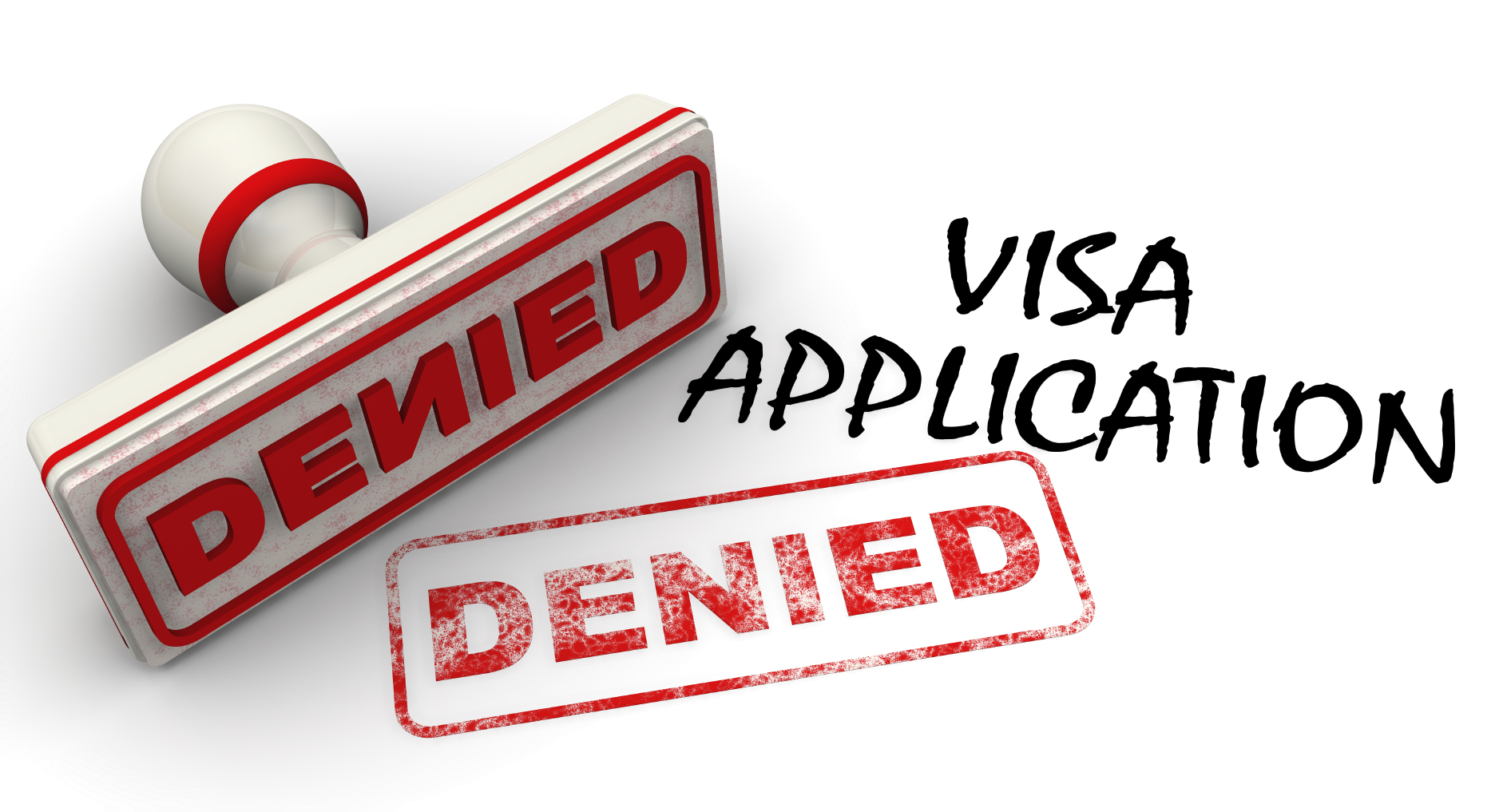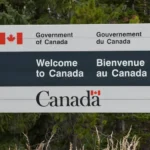
Denial of a visa. Red stamp and imprint "Denied"
The application process for a Canadian Study Visa is long and cumbersome, and this makes it even more painful when an application is refused.
Recently, there has been a spike in refusal rates, with the rate of refusal even higher for applicants in some parts of the world, especially African countries. The chances of getting a study permit approval in Canada if you are an African is currently about 25 percent.
Many factors are responsible for this, Immigration officials say one in 10 applicants are rebuffed for apparent fraud. Others don’t make the cut because they’re unable to prove they have enough money to pay high tuition fees and rents in Canada. Others present study plans that don’t appear to make sense.
While some refusals are because the applicants do not meet the program requirements stipulated by the IRPA, some could be generic, based on the discretion of a Visa Officer, or the inability of the applicants to sufficiently prove the genuineness of their intention to study in Canada.
Visa application decisions are not made in a vacuum, and a combination of factors, analysis, and considerations go into the final decisions to be made. This notwithstanding, an innocent error or omission could trigger more additional refusal reasons identified by a visa officer, and some reasons could also be generic refusal reasons.
If your visa has been refused, contact your school immediately to let them know, and see if you can defer your admission to another session/term…. Then work on the reasons identified and address them sufficiently.
Recently Ogayemi Law Firm listed some reasons that could be categorized as ‘generic’ reasons for Canadian study permit refusal here. These are reasons that could be given for the refusal of an application based on the discretion of the visa officer, or triggered by other reasons associated with an application.
Note, however, that individual situations and applications vary, and that is why it is important to seek expert opinion on your application before deciding n the next step(s) to take.
For instance, if an applicant was found inadmissible as a result of misrepresenting a material fact in the application and given a visa ban, that would be a separate discussion.
This could be as a result of misrepresenting/omitting a material fact in your application, submitting falsified documents, withholding useful/compelling information, etc.
If you’re sure this isn’t so for you and you received an inadmissibility rule based on misrepresentation, talk to a licensed law firm.
Some of the law firms you can talk to are:
If you were simply refused, you will receive a letter with the basic reason(s) for refusal. It could be the purpose of visit, home ties, travel history, etc.
For some people, these reasons are generic and should not even apply to them.
Today I will discuss Two (2) things that an applicant could consider doing, based on the category of the refusal reasons received.
OPTION A: Judicial Review
If you check the refusal letter, and you are confident that you clearly articulated your reason(s) for applying for the visa; showed sufficient funds/assets, personal assets, and highlighted your home ties, among other things, you may apply to the Federal Court of Canada for a Judicial Review.
Temporary resident visa decisions are administrative decisions that sometimes involve the discretion of a Visa Officer. These decisions can, therefore, be reviewed by the Court. Essentially, you must show the court that the decision was unfair, unreasonable, or made in error.
Recently, applications from some countries are getting refused at a high rate, and with identical refusal reasons, even though applicants are different. This has led more applicants to approach the Federal Court of Canada for a Judicial Review, and many have been successful with it.
You may consider a Judicial Review if you identified that a Visa Officer, for instance, did not consider an important document or information already provided, or made a decision on your application based on the requirements of a separate immigration program. You can read the example here.
Note that in a Judicial Review, a Federal Court Judge will not automatically substitute the decision of the Visa Officer. The court will examine the process that led to the decision and review if this was fair and reasonable. If not, the application will be ordered to be redetermined by another Visa Officer.
It is also not uncommon for the IRCC (through their lawyers) to offer to settle and redetermine a case before a Court order is made. Some cases end with a settlement offer before an order is made by the court, some will go into full litigation, and some will be followed by a subsequent redetermination and/or approval.
As I earlier said, you need a Canadian lawyer in good standing to represent you, and to apply for a Judicial Review. You also have a specific timeline from the date of the refusal to file for a Judicial Review. Once you receive a refusal letter contact a Canadian Lawyer to consider your option(s).
Please note that, just like the visa application processing times, the turnaround time for finalizing Judicial Review may also vary per case or applicant. There is no fixed timeline for when the process is expected to be completed.
OPTION B: Visa Refusal Management & Reapplying
If you consider that the refusal by the Visa Officer was fair, reasonable, and without error, you have the option of reapplying. I, however, advise you to only reapply after doing some things.
First, find out the detailed reason(s) for your refusal and address them well. The rejection letter will mention the basic reason(s) for refusal (but not explain it in detail). To know more, you can request what is called the GCMS Notes.
You will provide a consent form to an individual or Corporation in Canada to request on your behalf. This comes with a fee.
It also takes about 30 days or more for the GCMS notes to be released. If you need assistance with the GCMS file retrieval, you can contact an authorized representative, organization, or someone you know in Canada to assist you with that.
In addition to the law firms I earlier mentioned, some of the organizations you can talk to are:
- Ogayemi Law Firm (Law Firm)
- Mo‘s Law Office (Law Firm)
- QS Immigration
- Green Tulips Immigration
- Infoplace Canada
- Greens on Gardiner Immigration Consulting Clinic
- Tofino Immigration
- Canada Info Hub
- FTO Immigration Services
- Enter Canada
All the organizations and law firms are licensed authorized representatives in Canada
In your GCMS Notes, you will see the detailed reason(s) for the refusal, the comment(s) made by the Visa officer, and other useful information. That would guide you on what to do better before submitting a new application.
Second, provide sufficient and additional information and documents to show that you have addressed the concerns raised in your previous application. If you need to hire an authorized representative to assist you with this, try your best to do so.
Third, if the resumption date for your program is fast approaching, and you wouldn’t have sufficient time to seek a Judicial Review, or reapply before the program start date, contact your school as soon as possible and provide an update to the school.
Let your school know your application was refused, then seek a deferral of your place in the program to the next available intake.
That way you get to keep your space in the program while working on getting a study permit to begin your study in Canada.
I also have a video here where I explained some of these issues and the practical steps to take. Please see the video here
Importantly, it is advisable to address the concerns before reapplying. There is no given timeline for you to reapply, but you stand a better chance of success if you address the concerns raised very well.
And to be very clear, a previous refusal doesn’t mean you will be automatically refused again. You just need to show that you now meet the requirements of the visa you’re applying for.
I hope this is of help to someone, and I still look forward to welcoming you to Canada.
If you have questions on Career & Personal Development, Personal Finance, or Building a Personal Brand and want to reach out to us, check what we have here.
DISCLAIMER: The posts and information on this website are not legal advice. We are not Canadian Immigration Consultants and do NOT provide Canadian Immigration Services. For any authorized Canadian Immigration information, services, or support, please check the Government of Canada website at www.canada.ca/immigration
© Olu of Canada






Can you use the same Gckey account to Reapply after refusal or you create a new account.
You can use the same.
Thank you
Hello sir
I was being handled by someone on my first refusal. I’m still with no access to my Gckey, can I create another and continue my reapplication on it.
Yes